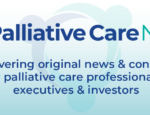Palliative care and its core principles may be driving incremental change in the larger health care system. Some of this is likely due to necessity as the nation strains to manage the extensive needs and expensive costs associated with the care of the growing chronically ill senior population. Currently, more than 10,000 individuals become Medicare-eligible […]
Center to Advance Palliative Care
Want to read more palliative care-focused content like this? Subscribe to Palliative Care News today! A wide variety of palliative care services have cropped up nationwide in recent years, but not all have remained viable. The forces driving some community-based palliative programs to shutter are two-pronged, related to financial and operational sustainability, according to Renee McInnes, […]
Want to read more palliative care-focused content like this? Subscribe to Palliative Care News today! With the palliative care space in a state of flux, some experts in the field see cause for optimism as well as real questions about what these services will look like, as well as the structures that support them. “Palliative care” […]
Lawmakers recently introduced the Value in Health Care Act, which, if enacted, could create inroads toward improved palliative care reimbursement. A new version of the Value in Health Care Act includes updates to program parameters of Alternative Payment Models (APMs) to incentivize participation in Accountable Care Organizations (ACOs). These changes are designed to increase participation […]
Palliative care providers have opportunities to bridge gaps of unmet needs among patients who have serious mental illnesses (SMIs) and their families. People with SMIs navigate a complicated mental health care system that can become even more challenging when they have a serious or chronic physical illness. Breakdowns in a fragmented health system have frayed […]
Research around hospice care has come a long way. But data gaps exist when it comes to expanding understanding of some aspects of end-of-life care delivery. A range of researchers has amassed a growing base of data on hospice, with some common themes tied to quality outcomes, costs, length of stay and general inpatient care. […]
A look back at Palliative Care News’ five most-read stories this year paints a picture of trends shaping the serious illness care space. Securing reimbursement — and the promise of value-based contracts — continues to be top of mind for many palliative care providers as they look ahead to 2024. Operators have their eyes on […]
Palliative care organizations that integrate employee feedback into their staff development policies have a fighting chance in battling ongoing burnout and turnover in the field. The palliative care workforce is facing a wide range of challenges that impact their ability to thrive in the field. Providing serious illness care can be emotionally and mentally taxing […]
A moving target in palliative care delivery is whether or not these services should have a dedicated benefit in the Medicare system. Discussions have heated up as to what such a program would mean for the industry. Palliative care models vary widely, with some focusing on interdisciplinary pain and symptom management, and others on consults […]
Progress on growing access to quality palliative care has been challenged by hurdles in policy, payment and common misperceptions among patients and providers. Palliative care providers can help patients and families at various points along their health care trajectories, but the fragmentation in the nation’s health system has led to widespread access issues, according to […]




